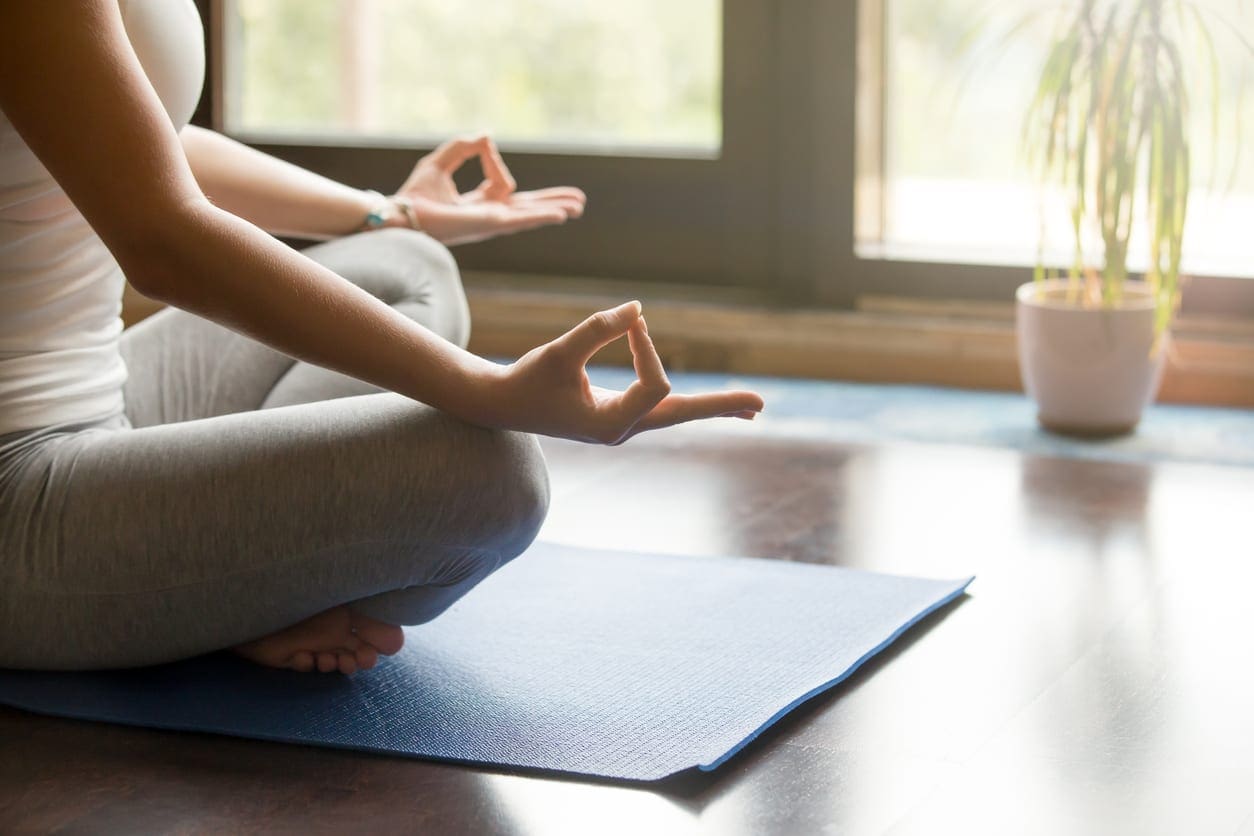The Ultimate Meditation Room for Your Home

It’s the twenty-first century, and self-care is a trend that thankfully isn’t going anywhere and one we can all get behind. Your well-being, however, extends beyond a relaxing bubble bath, a pre-made breakfast smoothie, or a hot yoga class. It’s vital to seek a source that will satiate your soul and quench a craving for something deeper that comes with making the time—and just as importantly, the space—to meditate.
When it comes to the concept of meditation itself, perhaps you’re new to this and you’re inspired by recent experiences: maybe you’ve just got back from Cambodia and you want to cultivate the incredible calm you felt in Angkor Wat; you fell into a conversation with God while hiking the Appalachian Trail; you visited the renowned Hsi Lai Buddhist Temple in Hacienda Heights while on vacation in California; you experienced Gaia on the playa when you thought you were simply going for a good time at Burning Man. Or perhaps you’ve just sent your fourth “per my previous email” reminder, gathered Legos into the toy box, put an endless stack of laundry away, or walked in the door from your last errands on a Tuesday night, and realized it’s time to salvage your remaining sanity in the day and make time for yourself. You recognize that replenishing yourself and looking inward will also allow you to offer up your own good energies to those you love and the universe at large.
On the other hand, maybe you’re a seasoned meditation veteran with a lifelong mindfulness practice, an expert in Palo Santo and its soul-activating benefits, or a great energy-healer, but have never been quite able to curate your own meditation space. Whether as a result of roommates, interior decorating or space restraints, or simply fleeting time for finding fulfillment in a meditative state within the walls of your own home, it’s still worthwhile to create a personal and private meditation space.
While picking the ideal spot in your home may seem like the first step, it’s far easier to break down this process into small steps; the first one is to choose the objects that will both assist you in comfortably sitting in your preferred meditation position, and help foster a sense of calm and peace.
Begin simply by deciding upon a mat or material that will make up the parameters of your initial space. If you do yoga, your current mat can do double duty as a meditation mat. Bear in mind that a neon-colored yoga mat may prove to be distracting while you sit, and something more muted in color may be a better fit for meditation. Additionally, any moderately sized foam or portable material that offers some cushioning will suit the need to outline the perimeter of your chill zone while providing moderate relief from the hard floor.
The second vital piece to carefully choose is the bench or chair upon which you will sit while meditating. A seiza, or sitting bench in Japanese, is quite traditional to the practice of meditation. If you’re new to meditation and practicing mindfulness, a firm chair may be best, to begin with, as sitting on a seiza bench can be tough on the knees. Settle on a chair that provides you with proper support, without too much cushioning. As with a bench or chair that’s too hard, a seat that you sink into may allow you to slip into sleep and out of a meditative state.
Now that you have the necessities to physically sit, finding around three items of personal importance will serve to further ground you in your space and in finding your center. To determine which objects to choose, look at what certain photos, sacred figures, or family mementos have a special meaning for you, and give you a sense of calm and peace. In general terms, the first item should be heavy, thereby grounding you in your physical state and in the present moment. The second item should be light and freeing, such as incense to burn during meditation practice. The third item should activate within you the feelings you want to cultivate while you sit: joy, peace, gratitude, calm, love, and kindness. These items will always bring you back to the center and help you stay focused.
Next, choose your space. As you walk about your house using a critical eye to evaluate every square inch, there are key features that will help you determine the ideal space for your meditation room. Begin the walk-through of your home right from the front door: is there a room within view that you can see from the initial threshold? If so, this room, when set up properly with your mat, seating, and inspiring items, will be visible the moment you get home, beckoning you to come to sit and breathe. Other details to consider are good ventilation: it may seem like a tucked-away study with no windows or sounds of street traffic would be ideal for lack of outside distractions, but a room that’s stuffy can also disrupt the calming of the mind. If facing east is important to you, whether to follow ancient customs or experience more favorable electromagnetic earth currents, placing your alter and invaluable items on the eastern wall of your meditation room will assist you in always directing your energies eastwardly.
If real estate within your home is hard to come by, a designated corner or nook can be more than enough for your practice. If you have a larger area to play with, a square of around 6-8 feet around your mat will allow for walking and moving meditation, which you may want to explore once you’re ready for deeper examinations within your meditation practice.
While simplicity is key when focusing your mind, little additions such as naturally air-purifying plants will contribute a connection to the earth while meditating. Common plants include ivy, aloe vera, and daisies. Calming essential oils can also add to the ambiance, but be mindful of the ones you choose; scent is our strongest tie to memory, and a familiar one can stimulate your mind and your memories, making it difficult to return to a meditative state.
Like anything, the more you practice a task, the better and more natural the task becomes. Repetition is key in training our physical, mental, and spiritual selves, and by having a meditation room in your home, the activity of devoting time to your faith practice becomes second nature. This repetitive notion of carving out time in your day now that you have carved out a space for meditation will then become a transferable state of mind you can tuck into during even the most mundane of tasks. Because you will go to the same meditation room on a regular basis, and because you will train your thoughts to quiet when needed, this calm mental state will be accessible to you throughout the rest of your day, such as while unpacking groceries, driving through traffic, or walking the dog. The benefits of curating a meditation room within your home, are far-reaching beyond just that space.
Thank You Alejandra Roca



